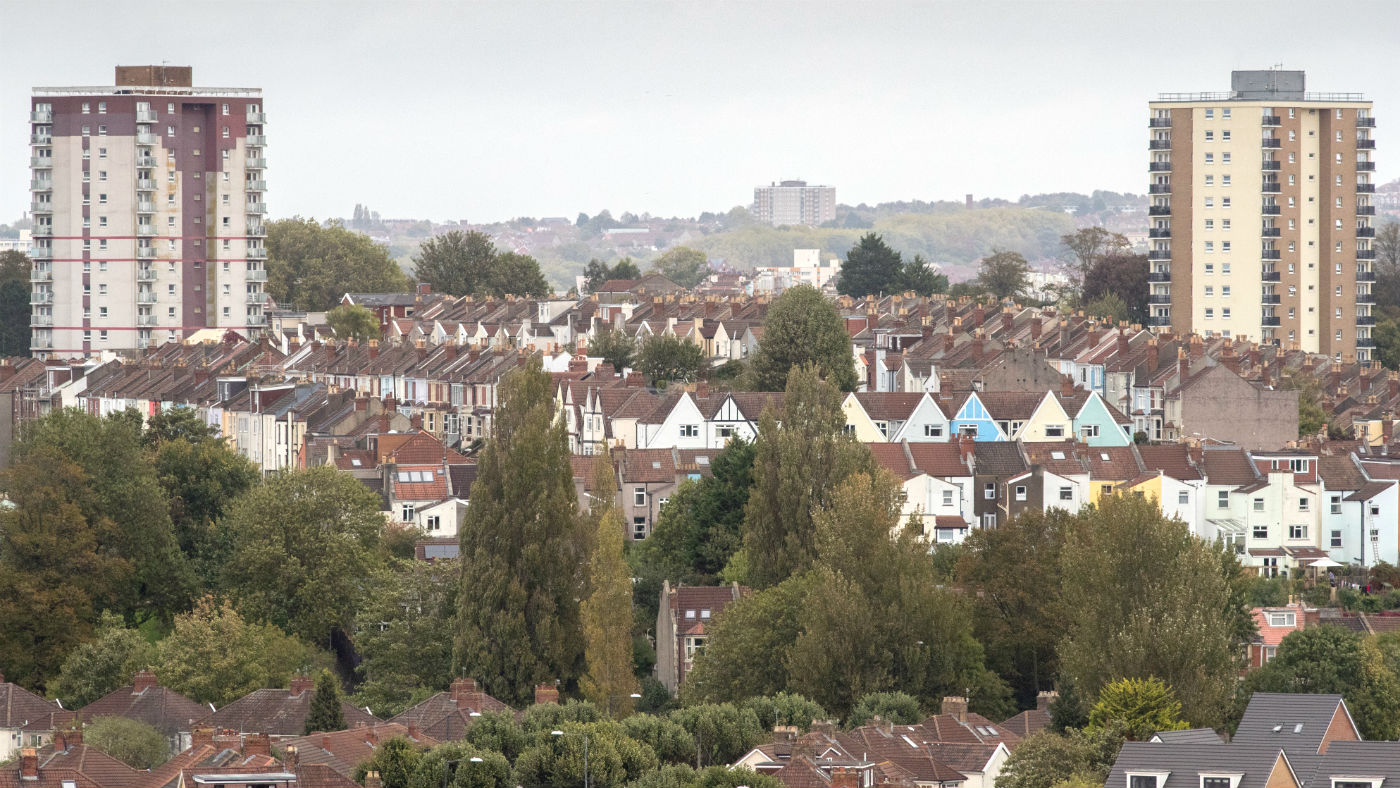Britain is a ‘social mobility postcode lottery’, report says
Social Mobility Commission’s annual report reveals widening divide in life prospects

A free daily email with the biggest news stories of the day – and the best features from TheWeek.com
You are now subscribed
Your newsletter sign-up was successful
The impact of Britain’s widening geographical inequality on people’s life prospects has been revealed in the Social Mobility Commission’s annual State of the Nation report.
Ranking all 324 local authorities in England in terms of the life chances of someone born into a disadvantaged background, the report “debunks the assumption that a simple north/south divide exists”, says Sky News, “instead suggesting there are hotspots and coldspots found in almost every part of the country”.
The report shows social mobility is a ‘postcode lottery’ that often bears no relation to whether the area is rich or poor.
The Week
Escape your echo chamber. Get the facts behind the news, plus analysis from multiple perspectives.

Sign up for The Week's Free Newsletters
From our morning news briefing to a weekly Good News Newsletter, get the best of The Week delivered directly to your inbox.
From our morning news briefing to a weekly Good News Newsletter, get the best of The Week delivered directly to your inbox.
The index finds that the worst-performing regions for social mobility are no longer inner city areas, but remote rural or coastal areas and former industrial areas, such as the West Midlands, that are being left behind economically and hollowed out socially.
In areas such as these, “youngsters from disadvantaged backgrounds face lower rates of pay, fewer top jobs and travel-to-work times nearly four times those of urban residents”, reports The Independent.
London by contrast, is the most successful place in the country for putting disadvantaged children onto the road to success, leading it to be described as a “different country” from the rest of the UK by the report’s authors.
HuffPost highlights the number and quality of teachers available as “a critical factor in the performance of the best areas”.
A free daily email with the biggest news stories of the day – and the best features from TheWeek.com
It notes that London has gone from having the worst schools in England to having the best, thanks to links between schools and more fast-tracked teachers who are more likely to stay longer in their jobs. In contrast, a secondary teacher in the most deprived areas is 70% more likely to leave.
Alan Milburn, the commission chair and former Labour health secretary, warned that there could be a rise in extremism unless the social divisions outlined in the report were tackled.
Speaking to journalists he said: “These are volatile and uncertain times. Right now Britain seems to be in the grip of a self-reinforcing spiral of ever-growing division. The growing sense that we have become an us and them society is deeply corrosive of our cohesion as a nation.”
While Milburn acknowledged that “political alienation and social resentment” felt by the so-called ‘left behind’ had fuelled anger at globalisation and led, in part, to the Brexit vote, he said leaving the EU would not solve these grievances and could in fact make them worse.
Instead, Milburn called on the government to increase the proportion of spending on those parts of the country that most need it, amid claims that the north is underfunded by £6bn a year compared to London.
Writing in The Guardian Milburn argued that: “Overcoming the divisions that exist in Britain requires far more ambition and far bigger scale. A less divided Britain will require a more redistributive approach to spreading education, employment and housing prospects across our country.”
-
 Political cartoons for February 22
Political cartoons for February 22Cartoons Sunday’s political cartoons include Black history month, bloodsuckers, and more
-
 The mystery of flight MH370
The mystery of flight MH370The Explainer In 2014, the passenger plane vanished without trace. Twelve years on, a new operation is under way to find the wreckage of the doomed airliner
-
 5 royally funny cartoons about the former prince Andrew’s arrest
5 royally funny cartoons about the former prince Andrew’s arrestCartoons Artists take on falling from grace, kingly manners, and more
-
 How corrupt is the UK?
How corrupt is the UK?The Explainer Decline in standards ‘risks becoming a defining feature of our political culture’ as Britain falls to lowest ever score on global index
-
 The high street: Britain’s next political battleground?
The high street: Britain’s next political battleground?In the Spotlight Mass closure of shops and influx of organised crime are fuelling voter anger, and offer an opening for Reform UK
-
 Biggest political break-ups and make-ups of 2025
Biggest political break-ups and make-ups of 2025The Explainer From Trump and Musk to the UK and the EU, Christmas wouldn’t be Christmas without a round-up of the year’s relationship drama
-
 ‘The menu’s other highlights smack of the surreal’
‘The menu’s other highlights smack of the surreal’Instant Opinion Opinion, comment and editorials of the day
-
 Is a Reform-Tory pact becoming more likely?
Is a Reform-Tory pact becoming more likely?Today’s Big Question Nigel Farage’s party is ahead in the polls but still falls well short of a Commons majority, while Conservatives are still losing MPs to Reform
-
 Taking the low road: why the SNP is still standing strong
Taking the low road: why the SNP is still standing strongTalking Point Party is on track for a fifth consecutive victory in May’s Holyrood election, despite controversies and plummeting support
-
 Is Britain turning into ‘Trump’s America’?
Is Britain turning into ‘Trump’s America’?Today’s Big Question Direction of UK politics reflects influence and funding from across the pond
-
 What difference will the 'historic' UK-Germany treaty make?
What difference will the 'historic' UK-Germany treaty make?Today's Big Question Europe's two biggest economies sign first treaty since WWII, underscoring 'triangle alliance' with France amid growing Russian threat and US distance